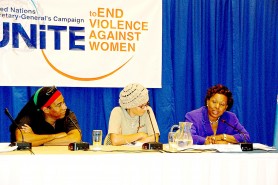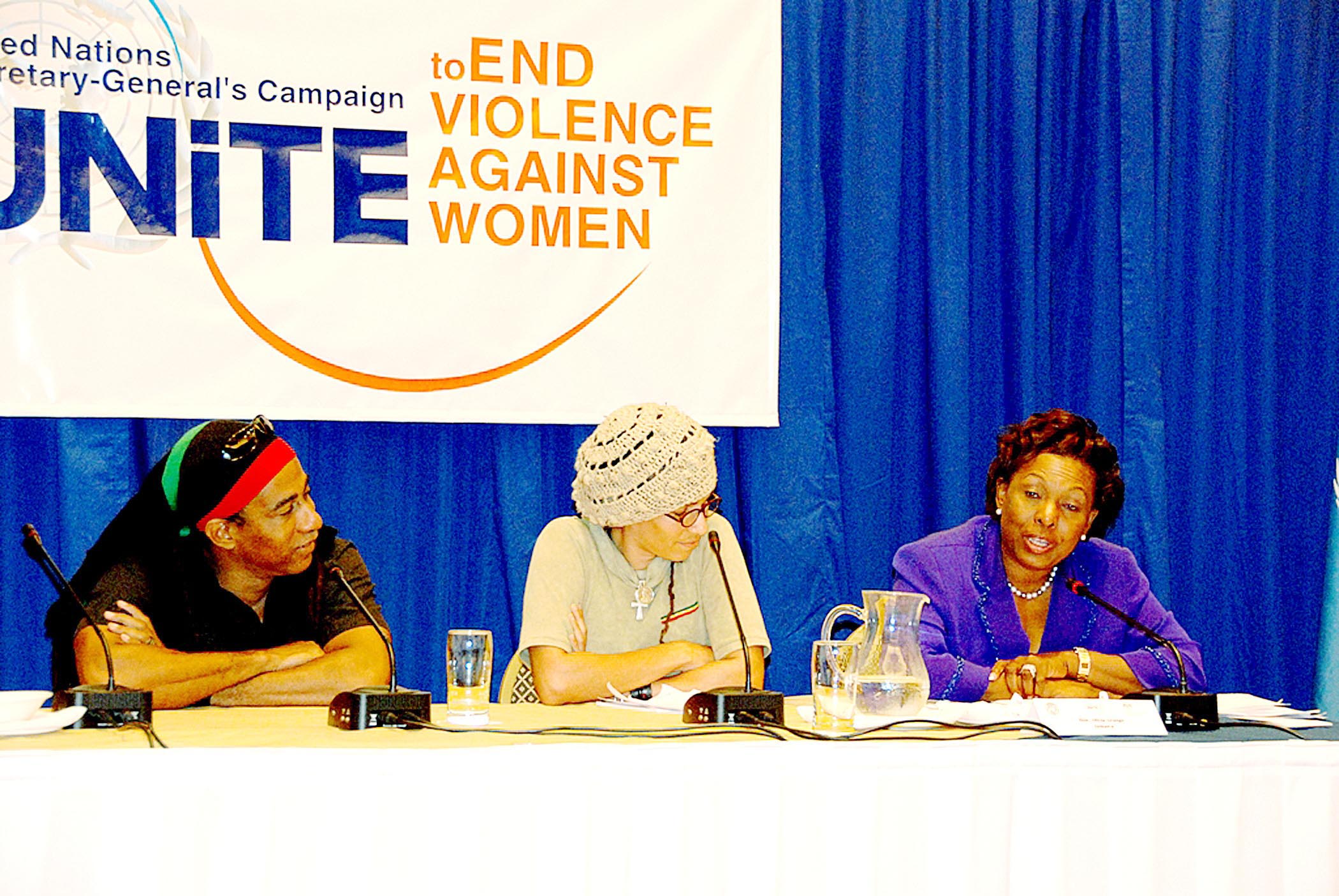“Positive music is not popular music,” says Adisa Jelani Andwele, UNDP Spokesper-son for Peace and Poverty Eradication and according to him, the Caribbean region has a deficit of artistes who are willing to use music positively.
Adisa was recently asked by UN officials to gather several artistes in the region to participate in the United Nations Secretary General Campaign- Unite to End Violence Against Women. He spoke of the experience and the roles artistes should play at the launch of the campaign in Barbados.

Adisa hailed the inclusion of artistes in the fight to end domestic violence as “important”, noting that the time has come for musicians to act more responsibly and to join the global movement in ending violence against women and girls.
But according to him the entertainment business is about “getting rich, being famous and selling millions of records”. The interest to promote positive music is not high on the agenda of industry executives who are scouting for talent, he said, adding that some artistes are left with no choice.
Major records companies are not interested in what a particular artiste wants to sing when they sign them, he stated, adding “they tell you what they want you to sing”. He said control over content and image is not up to artistes.
Speaking of fellow Barbadian artiste and international superstar Rihanna he said, her label and industry backers had an opportunity to use her as a voice against violence against women following the incident with Chris Brown. He said they decided to go for edgier, controversial and “some amount of violence”.
Adisa said artistes have a social responsibility to make a difference and to sing positive music to the youths. “…How do you change a mindset, a media that has glorified violence and the negatives through music and films?” he asked.
He said that boys are growing up believing that the more violent they are the better, because of what some of them are exposed to in the society and the music they listen to, among other things.
He continued that some artistes often point to the fact that they come from a violent environment and have no choice but to sing about it, but he disagrees. He said that those artistes should be singing about the positives and about non-violence to change the mindset of the people who listen to their music. “…If you grow up knowing about war why not sing about peace?”
He said the Unite campaign will also target radio deejays and television personalities to get them onboard with spreading positive messages and changing the culture of violence that plagues the region.

Speaking on the issue, UNIFEM’s Michelle Gyles-McDonnough said that the involvement of artistes in the social mobilization of the campaign is critical. “They have the power of voice, the power of the pen, and the power of personality,” she said, noting that they also influence the youths who are listening. She said too that their sustained contribution is very valuable because they are beamed into people’s homes all day.
Some participants at the Barbados forum questioned the music of some popular Jamaican artistes such as Mavado. “My son listens to him so I decided to listen to him and I don’t like this Mavado,” a woman said. Others praised artistes like Tarrus Riley, Queen Ifrica and Etana saying that their music represents a much needed change from what is in regular rotation.
The conversation on artistes in the region also shifted briefly on Jamaican artiste, Bounty Killer who has been detained on several occasions for allegedly abusing women.
Jamaica’s DDP, Paula Llewellyn pointed to a recent case on the island involving the singer where the victim alleged that she was badly beaten. However, she said women usually recant statements and would refuse to give evidence against the singer which resulted in him going free.
Jamaica’s Minister of Youth, Culture and Sport, Olivia Grange, who is also a former manager of Bounty Killer later, reported to participants that Bounty Killer got word of his name being featured at the conference and had communicated that he was ready to change and turn from his violent past.
([email protected])

